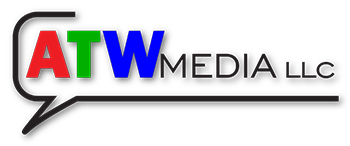BBB Warns of Money Order Scam
Posted/updated on: August 29, 2011 at 12:39 pm
TYLER — One of the latest scams to hit East Texas consumers involves counterfeit postal money orders. According to the Better Business Bureau Serving Central East Texas, con artists posing as students, tourists, and overseas military personnel ask for help in cashing checks and money orders, or target people looking for love or companionship, in order to exploit their vulnerability. Job seekers and online auctioneers are also at risk. Con artists ship the money order and ask the victim to cash it, keep a portion as a gift or payment for services rendered and wire back the rest, usually to an overseas address.
In a recent case, the victim applied for a position to be a mystery shopper. The “company” sent her first assignment with two postal money orders and instructions to cash the payment and deduct $300 as her weekly wage. Her “job” was to observe the efficiency of the Western Union office and wire the remainder to an individual in Malaysia.
“Americans trust the U.S. Postal Service”, said Mechele Agbayani Mills, President and CEO of BBB Serving Central East Texas. “Consumers often believe that postal money orders and cashier’s checks are legitimate and are not subject to recourse once the checks are cashed, however, bank customers are responsible for the checks they deposit, and victims must repay the bank for bad checks.”
Postal Money Order Security Features
Similar to U.S. currency, postal money orders are designed with colored inks, watermarks, and security threads. The following are security features of genuine postal money orders:
• Watermarks of Benjamin Franklin, visible when held to the light, run through the white oval on the left front side of the money order. Watermarks are also visible from the reverse side.
• A dark security thread runs from top to bottom to the right of the Franklin watermarks. When held to the light, the thread reveals the microprinted letters “USPS” alternating right-side up and upside down throughout the thread. The letters are not visible if not held to the light.
• Warning instructions are printed on the reverse of postal money orders.
• Denominations are displayed in two locations, on the front, with no discoloration around the dollar amounts.
• Maximum value of $1,000 on domestic/$700 on international postal money orders.
BBB reminds consumers that they can sidestep a money order scam by following these simple rules:
Legitimate companies never send emails to strangers offering them work, ask someone they’ve never met to help process payments, and will never ask employees to wire money back to them or to another individual.
Mills advises that you be skeptical of anyone asking you to wire money to overseas bank accounts, or to cash money orders on their behalf. She says business owners should never accept money orders or checks for more than the selling price. Also, you should resist time-sensitive transactions. Scammers want the transaction to occur before it is discovered that the money order is counterfeit. And keep in mind that most counterfeits originate overseas, so the correspondence is typically rife with spelling and grammatical errors. Go to http://www.bbb.org for more tips on how to be a savvy consumer or business owner. To report a fraud or scam, call the BBB Hotline: (903) 581-8373.




